According to Gerald Hancock in his small book, Goyt Valley Romance, it shows the French chef from Errwood Hall at far left, alongside three other servants from the hall.
This letter from Winifred Critchlow describes life ‘below stairs’ at Errwood Hall. Her parents, James and Mary, had been servants at the Hall before emigrating to Canada. My thanks to R Stephenson-Smythe from the Whaley Bridge Local History Group for enabling me to copy it here.
My Mother through friends got a job in London. Her stepmother and stepsisters had her during all the work and her friend said she could get her a job with pay.
These rich Lords and Ladies had a London Home and also one near Manchester. It was called Errwood Hall and there were five Lords and Ladies and a Priest and they had 20 inside servants and others who looked after horses and other stock outside.
The servants lived in and had their own dining hall in basement. Just like the play “Upstairs Downstairs” seen on television. Written by Jean Marsh, who was also in it.
My Mother worked at the “Hall” with 3 French chefs and learned French out of necessity. My father worked with the Horses. They had riding horses and work horses and carriage horses.
Money was no object. After First World War they lost all that property and other properties in order to pay the High Taxes needed to pay the War Debt. So they didn’t get off scot free.
You and your mother saw the ruins of Errwood Hall and imagine they owned all those farms where cows and sheep were raised. They the farm tenants had to pay their rent on New Year’s Day and were given a dinner in Servants Dining room at Errwood Hall on New Year’s Day and given (the men) cloth for a suit and the women cloth for a dress.
This was still going on when we left in 1912. Talk about your Feudal System and Labourers children were not supposed to go on to Higher education, no matter how clever. Only Teachers, Doctors and Ministers children could better themselves.
The reason my father came to Canada, to get out from under the Upper Crust. It was very difficult for my mom and dad, as up till move to Canada. They were told what to do and all decisions made for them.
This affected my mother more than dad, as she had worked under other servants, where he worked with the animals and was more or less in charge and had been given responsibility at an early age. But it was always a struggle.
Even so my father studied at night and took Correspondent Courses and worked where there was boilers and machines making Electricity and he tried exams and finally got his 2nd class Statuary Engineers’ Certificate and he worked usually Seven Days a week and had a big Garden.
Such a Life. No breaks. No vacations and Death due to accident at work at 47 years old – leaving six children 14 years and younger. The Workman’s Compensation gave my mother a very small pension, not enough to pay rent. I have written to Joe’s wife Agnes and await her answer.
Page update: 24th Jan 2022: Helen (see comment below) sent a copy of the funeral card for her great-great-uncle, The Rev Naylor. He appears in Gerald Hancock’s Goyt Valley Romance – I think as the cleric on the right – alongside children who I’m assuming were pupils at the small school beside the drive to Errwood Hall (click either photo to enlarge).
Page update: 27th March 2023: Helen just sent the photo above right of Rev Naylor: “My uncle gave me this photo which says on the back ‘Friar Geo Naylor GP’. I’ve not checked the resemblance to any other photos yet but guess it must be correct.”
So I don’t think he was the cleric to the right in the centre photo – unless this was taken when he was far older. I also asked Helen if she knows what the initials GP stand for. She replied: “I’m now wondering whether the G is actually a fancy written C, as in CP = Congregatio Passionis Iesu Christi. It seems CP is often written after the names of priests and friars.”
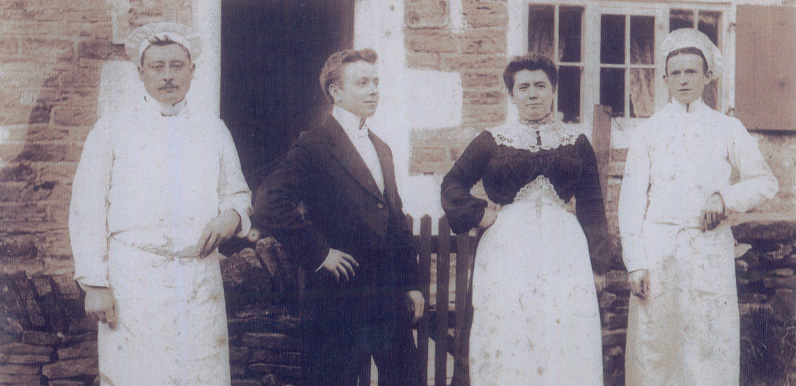
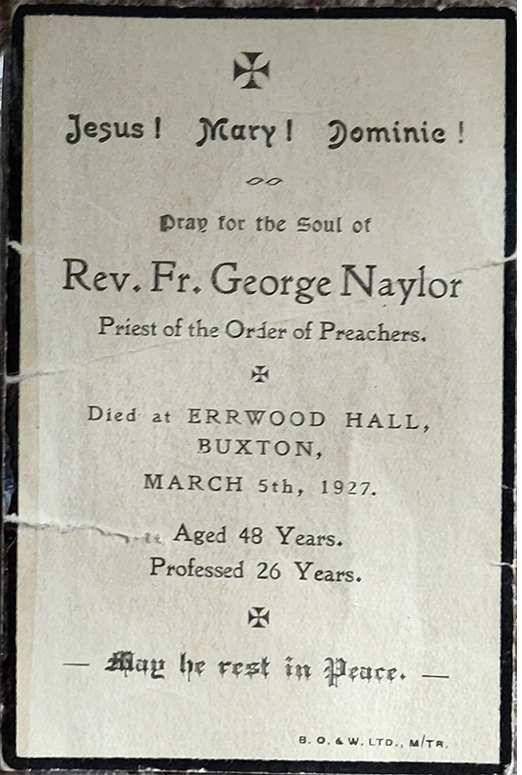
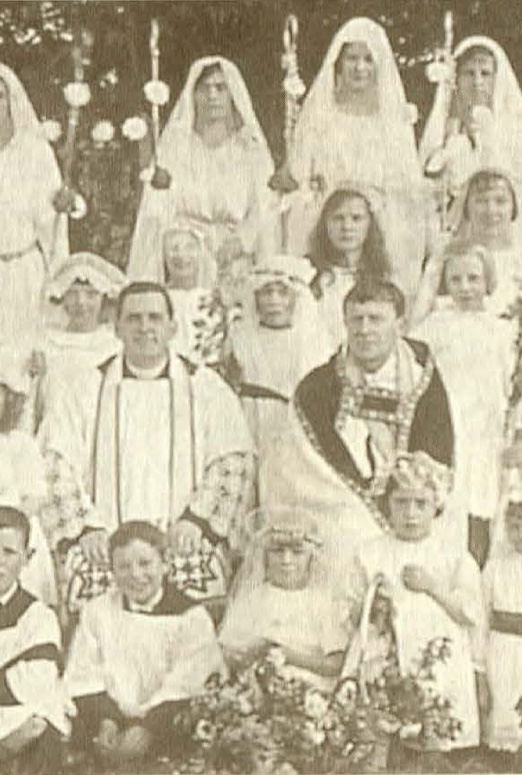
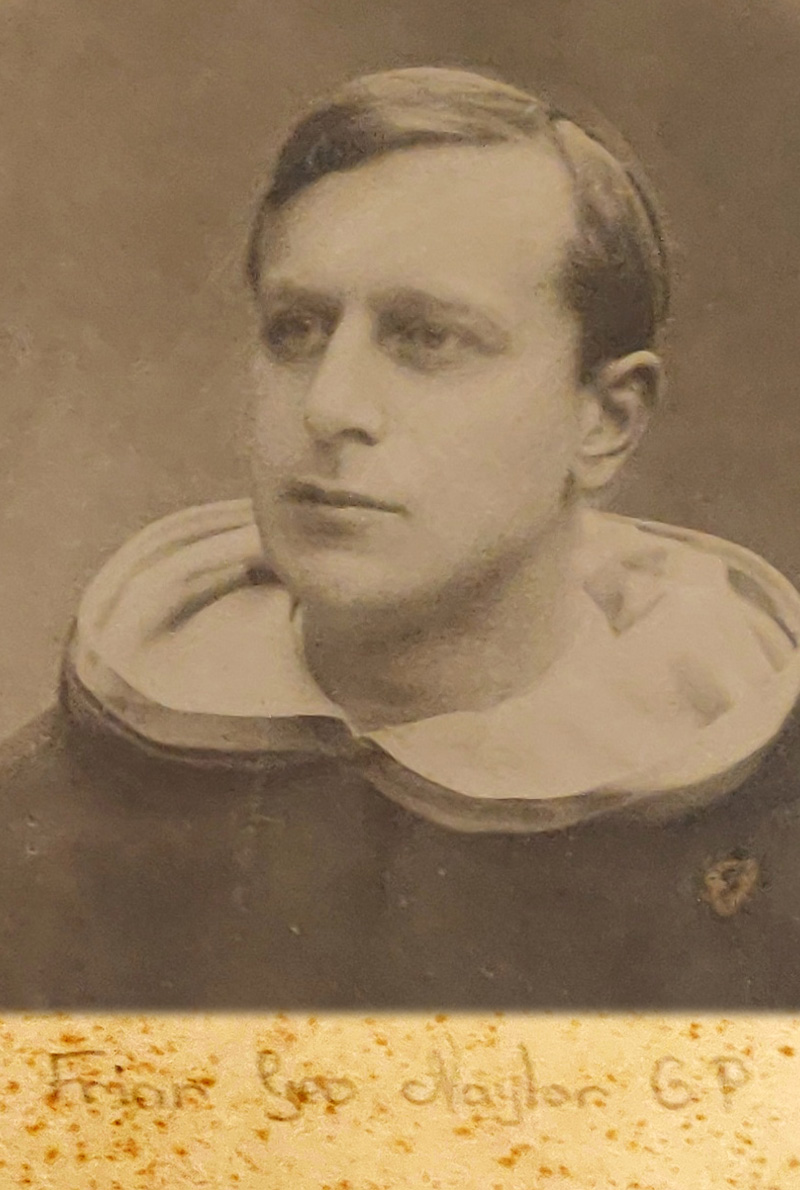
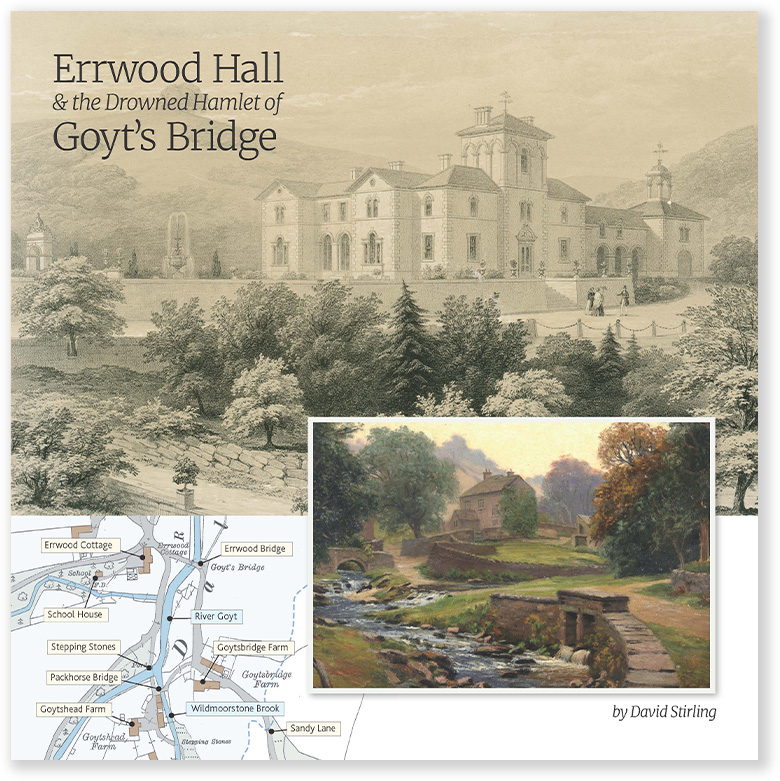
Has anyone got information on the priest? I’ve just found out my great great grandfather was a priest there. Would love to find out more.
Hi David, sorry I’ve only just seen your message. Thanks for your reply and information, it’s really interesting. I guess it is more likely to be my g-g grandfather’s brother as he wouldn’t have been able to have children I don’t think.. yes his name was Naylor.